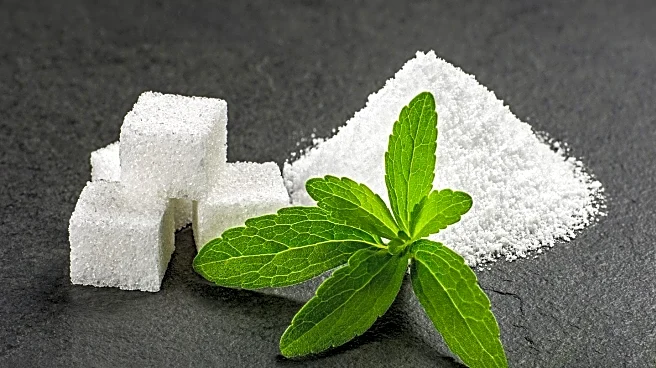What's Happening?
A recent study has found that stevioside, a compound derived from the stevia plant, may enhance the effectiveness of minoxidil, a common hair regrowth treatment. Conducted on mice, the research showed that combining stevioside with microneedle patches
allowed for better penetration of minoxidil into the skin, resulting in hair regrowth in 67.5% of treated areas. The study suggests that stevioside acts as a natural absorption enhancer, improving minoxidil's skin permeability. Dermatologists are cautiously optimistic but emphasize the need for further research to confirm efficacy and safety in humans.
Why It's Important?
The findings could lead to more effective treatments for hair loss, a condition affecting millions of Americans. If proven effective in humans, the use of stevioside could enhance the performance of existing hair regrowth products, potentially reducing the need for more invasive procedures. This development may benefit pharmaceutical companies and consumers seeking affordable and accessible solutions for hair loss. However, the need for controlled trials remains crucial to ensure safety and effectiveness.
What's Next?
Further research is needed to explore the potential side effects and confirm the efficacy of stevioside-enhanced treatments in humans. Dermatologists may begin considering microneedling techniques combined with minoxidil in clinical settings, pending more comprehensive studies. The pharmaceutical industry might invest in developing new products incorporating stevioside, contingent on positive trial outcomes.
Beyond the Headlines
The study highlights the innovative use of natural compounds in medical treatments, reflecting a broader trend towards integrating plant-based ingredients in pharmaceuticals. This approach may pave the way for more sustainable and eco-friendly solutions in healthcare.















